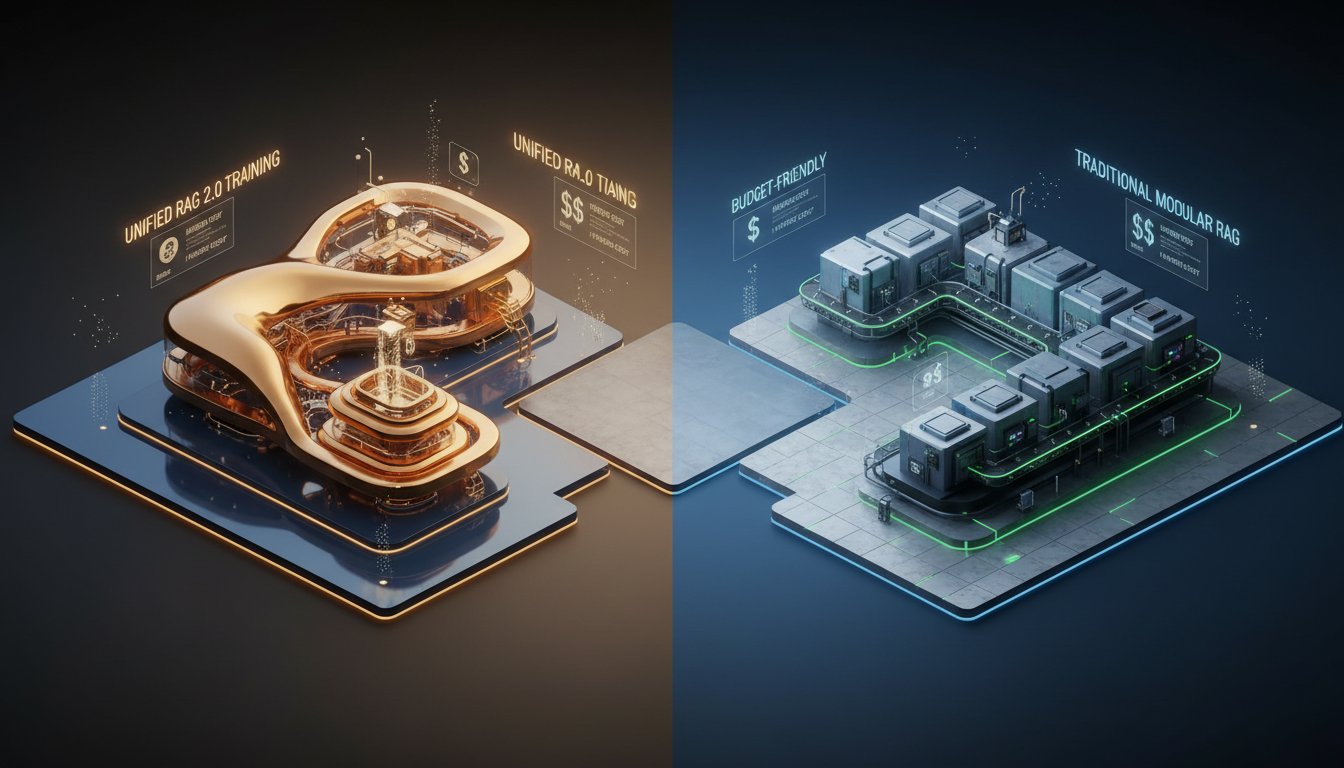When Progress Software announced its acquisition of Nuclia for $50 million on June 30th, 2025, most industry observers saw it as just another tech acquisition. But after analyzing the strategic implications, competitive landscape, and emerging market dynamics, I believe this deal represents a seismic shift that will fundamentally reshape how enterprises approach RAG implementation.
The acquisition isn’t just about Progress adding another AI tool to their portfolio—it’s about the emergence of RAG-as-a-Service as a viable enterprise solution, the democratization of agentic AI capabilities, and a direct challenge to the current market leaders who have been content to sell complex, expensive infrastructure solutions.
As Progress CEO Yogesh Gupta stated: “The acquisition of Nuclia represents our commitment to democratizing enterprise AI through agentic RAG-as-a-service capabilities that make generative AI more accessible to businesses of all sizes.” This isn’t corporate speak—it’s a declaration of war against the status quo.
In this analysis, I’ll break down why this acquisition matters more than the tech press realizes, what it means for enterprises currently struggling with RAG implementations, and how it positions Progress to capture a massive market opportunity that others have overlooked. We’ll also examine the immediate implications for current RAG vendors and what enterprises should do right now to prepare for this shift.
The Hidden Crisis That Made This Acquisition Inevitable
To understand why Progress’s move is so significant, we need to acknowledge the elephant in the room: enterprise RAG implementations are failing at an alarming rate. Recent Gartner research reveals that 87% of enterprise RAG systems fail to meet performance expectations, while 73% of enterprise AI deployments are failing due to reliability issues.
This isn’t a technology problem—it’s a complexity problem. Current RAG solutions require enterprises to become AI infrastructure experts overnight. They need to:
- Choose and manage vector databases (Pinecone, Weaviate, or Chroma)
- Integrate multiple LLM providers and manage their APIs
- Build custom embedding pipelines
- Implement security and governance frameworks
- Scale infrastructure based on unpredictable demand
- Maintain and update models continuously
The result? According to industry surveys, the average enterprise RAG implementation takes 8-12 months and costs between $500,000 to $2 million before delivering any business value. Many projects are abandoned before reaching production.
The Agentic RAG Complexity Multiplier
Traditional RAG was already complex enough. Agentic RAG—where AI agents can reason, plan, and execute multi-step tasks using retrieved information—adds exponential complexity. Enterprises need to manage:
- Agent orchestration frameworks
- Multi-modal data pipelines
- Complex reasoning chains
- Inter-agent communication protocols
- Dynamic knowledge base updates
- Advanced safety and alignment mechanisms
Most enterprises lack the technical expertise to implement these systems effectively. This is where Nuclia’s RAG-as-a-Service approach becomes game-changing.
Why RAG-as-a-Service Changes Everything
Nuclia’s platform abstracts away the complexity of RAG implementation while providing enterprise-grade capabilities. Instead of building RAG systems from scratch, enterprises can:
Deploy in Days, Not Months: Pre-built integrations with major enterprise systems mean RAG capabilities can be operational in days rather than months.
Scale Without Infrastructure Headaches: Built-in auto-scaling handles demand spikes without requiring infrastructure expertise.
Multi-Modal by Default: Support for text, images, video, and audio without complex pipeline engineering.
Agentic Capabilities Out-of-the-Box: Advanced reasoning and planning capabilities without building custom agent frameworks.
Enterprise Security Built-In: Compliance frameworks, data governance, and security controls that meet enterprise requirements.
The Economics Are Compelling
The financial case for RAG-as-a-Service is overwhelming. Consider a typical enterprise RAG implementation:
Traditional Build Approach:
– Initial development: $500K-$2M
– Ongoing infrastructure: $50K-$200K/month
– Dedicated team: 3-5 engineers ($600K-$1M annually)
– Time to value: 8-12 months
RAG-as-a-Service Approach:
– Initial setup: $10K-$50K
– Monthly service fees: $20K-$100K
– Dedicated team: 1-2 engineers ($200K-$400K annually)
– Time to value: 2-4 weeks
The cost savings compound over time, but the real value is in speed to market and reduced risk.
The Competitive Landscape Disruption
Progress’s acquisition of Nuclia doesn’t just add a new player to the RAG market—it fundamentally changes the competitive dynamics. Let’s analyze how this affects the major players:
Vector Database Vendors Under Pressure
Pinecone, Weaviate, and Chroma have built successful businesses selling vector database infrastructure. But if enterprises can get vector search capabilities as part of a comprehensive RAG-as-a-Service platform, why would they buy standalone vector databases?
Pinecone currently leads with 34% market share in enterprise vector databases, but their infrastructure-focused approach becomes vulnerable when enterprises can get the same capabilities bundled with full RAG functionality.
LLM Providers Face New Intermediation
OpenAI, Anthropic, and Google have focused on providing powerful language models while leaving integration complexities to enterprises. RAG-as-a-Service platforms like Nuclia become intermediaries, potentially commoditizing LLM access and reducing direct enterprise relationships.
This dynamic is already playing out. Apple’s reported consideration of external AI models (potentially Anthropic Claude or OpenAI) for Siri replacement signals that even major tech companies prefer integrated solutions over building custom AI infrastructure.
Traditional Enterprise Software Vendors Wake Up
Progress’s move signals to other enterprise software vendors that AI isn’t just a feature—it’s an existential threat. Companies like Salesforce, Microsoft, and Oracle must now decide whether to build, buy, or partner for comprehensive AI capabilities.
The $50 million acquisition price tag is relatively modest for the strategic value, suggesting we’ll see more aggressive acquisitions in this space.
The Technical Architecture Advantage
Nuclia’s technical approach addresses several critical limitations of traditional RAG implementations:
Unified Multi-Modal Pipeline
Traditional RAG systems struggle with multi-modal data. Enterprises typically have information scattered across text documents, images, videos, and audio files. Nuclia’s unified pipeline processes all content types through a single API, eliminating the need for complex integration work.
Agentic Reasoning Framework
While traditional RAG systems retrieve and generate responses, Nuclia’s agentic framework enables:
– Multi-step reasoning across retrieved information
– Dynamic query refinement based on initial results
– Context-aware response generation
– Automated fact-checking and source verification
Enterprise-Grade Governance
One of the biggest gaps in current RAG implementations is governance. Nuclia provides:
– Automated compliance checking against industry standards
– Audit trails for all AI decisions
– Role-based access controls for different user groups
– Data lineage tracking for regulatory requirements
What This Means for Enterprises Right Now
The Progress-Nuclia acquisition creates immediate implications for enterprises in different stages of their AI journey:
For Enterprises Currently Building RAG Systems
Pause and Reassess: If you’re 3-6 months into a custom RAG implementation, consider whether continuing makes sense. The emergence of mature RAG-as-a-Service options may provide better ROI.
Pilot in Parallel: Start a pilot project with RAG-as-a-Service platforms while continuing your build approach. This provides valuable comparison data and a potential backup plan.
Focus on Business Logic: Instead of building infrastructure, focus your engineering resources on business-specific logic and integrations.
For Enterprises Evaluating RAG Solutions
Expand Your Evaluation Criteria: Include RAG-as-a-Service platforms in your vendor evaluation. Don’t limit yourself to infrastructure-only solutions.
Calculate Total Cost of Ownership: Include the hidden costs of maintaining and scaling RAG infrastructure in your financial analysis.
Consider Implementation Speed: In rapidly evolving markets, the competitive advantage of faster deployment may outweigh the flexibility of custom builds.
For Enterprises Not Yet Started
Start with RAG-as-a-Service: Unless you have specific requirements that demand custom infrastructure, begin with a service-based approach.
Plan for Integration: Focus your preparation on data organization and system integration rather than AI infrastructure.
Build Internal Expertise: Invest in training your team on RAG concepts and business applications rather than infrastructure management.
The Broader Market Implications
This acquisition signals several broader trends that enterprises need to understand:
The End of the “Build Everything” Era
The early AI adoption phase required enterprises to build everything from scratch. We’re now entering the “intelligent integration” phase where pre-built, specialized solutions become more valuable than custom development.
AI Governance Becomes Table Stakes
With 48% of employees having excessive access to AI tools and insider risk increasing 67% with AI tool proliferation, governance isn’t optional anymore. Platforms that provide built-in governance will have significant competitive advantages.
The Rise of AI-First Enterprise Software
Progress’s acquisition suggests that traditional enterprise software companies will increasingly acquire AI-native platforms rather than building AI capabilities internally. This trend will accelerate M&A activity in the AI space.
Preparing for the Post-Acquisition Landscape
Based on the strategic implications of this acquisition, enterprises should take several immediate actions:
Audit Your Current AI Strategy
Review your current RAG implementations and planned AI projects. Ask:
– Are we building capabilities that could be better served by specialized platforms?
– Do our current solutions provide the governance and security we need?
– Are we prepared for the complexity of agentic AI systems?
Develop Platform Evaluation Criteria
Create comprehensive evaluation criteria for RAG-as-a-Service platforms that include:
– Technical capabilities and performance benchmarks
– Integration complexity and time-to-value
– Governance and compliance features
– Scalability and cost predictability
– Vendor stability and roadmap alignment
Build Internal AI Literacy
Invest in training your teams on AI concepts, but focus on business applications rather than technical implementation. Your competitive advantage will come from applying AI effectively, not building it from scratch.
Plan for Vendor Consolidation
The Progress-Nuclia acquisition is likely the first of many. Plan for a landscape where fewer, more comprehensive platforms serve enterprise AI needs rather than multiple point solutions.
Progress Software’s acquisition of Nuclia for $50 million represents more than a strategic addition to their portfolio—it’s a clear signal that the enterprise AI market is maturing rapidly. RAG-as-a-Service platforms are positioned to capture significant market share from traditional infrastructure vendors by solving the complexity problem that has plagued enterprise AI implementations.
For enterprises, this shift offers an opportunity to accelerate AI adoption while reducing risk and complexity. The companies that recognize this trend early and adapt their strategies accordingly will gain significant competitive advantages. Those that continue pursuing complex, custom-built solutions may find themselves at a serious disadvantage as the market evolves.
The question isn’t whether RAG-as-a-Service will become the dominant approach—it’s whether your organization will be ready to capitalize on this shift. The enterprises that start evaluating and piloting these platforms now will be best positioned to succeed in the AI-driven future that’s rapidly approaching. Don’t wait for your competitors to make this move first—the window for early-mover advantage is closing quickly.




